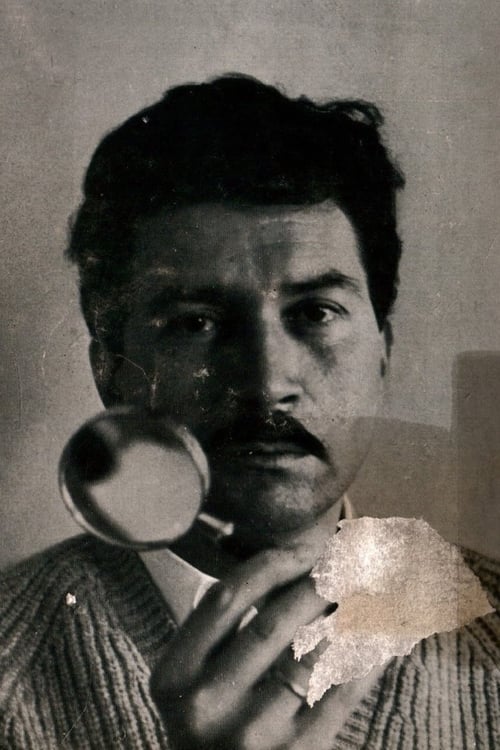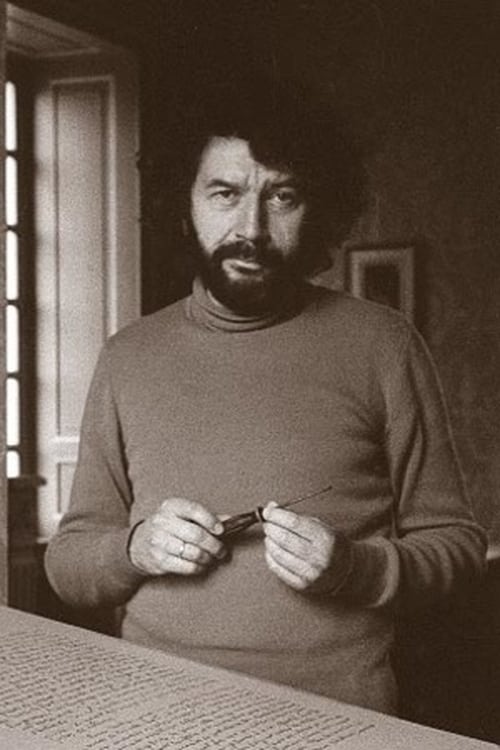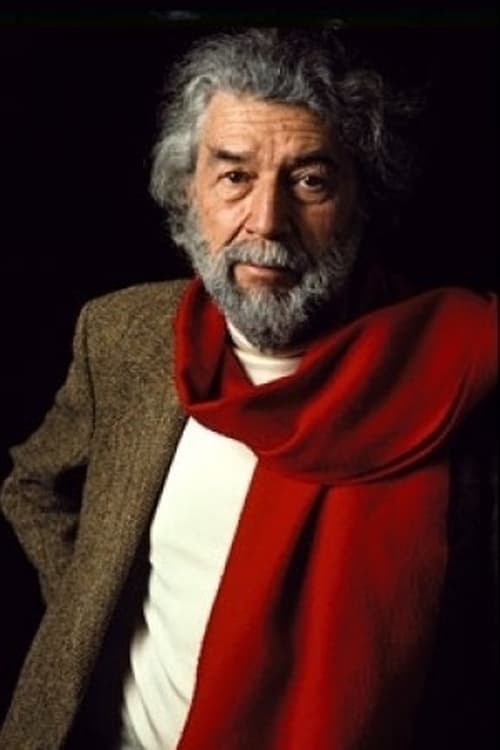
Alain Robbe-Grillet
Birth : 1922-08-18, Brest, Finistère, France
Death : 2008-02-18
History
Alain Robbe-Grillet was a French writer and filmmaker. He was, along with Nathalie Sarraute, Michel Butor and Claude Simon, one of the figures most associated with the Nouveau Roman (new novel) trend. Alain Robbe-Grillet was elected a member of the Académie française on March 25, 2004, succeeding Maurice Rheims at seat No. 32. He was married to Catherine Robbe-Grillet (née Rstakian).
Robbe-Grillet's career as a creator of fiction was not restricted to the writing of novels. For him, creating fiction in the form of films was of equal importance. His film career began when Alain Resnais chose to collaborate with him on his 1961 film Last Year at Marienbad. The film was nominated for the 1963 Academy Award for Writing Original Screenplay and won the Golden Lion when it came out in 1961. In the credits it was presented as a film equally co-authored by Alain Robbe-Grillet and Alain Resnais.
Robbe-Grillet then went on to launch a career as a writer-director of a series of cerebral and often sexually provocative feature films which explored similar themes to those in his literary work (e.g. Voyeurism, The Body as Text, The 'Double'). He commenced with L'Immortelle (The Immortal One) (1962) which won the much-coveted Louis Delluc Prize of 1962. This was followed by his most commercially successful film after Last Year at Marienbad: Trans-Europ-Express (1966) starring Jean-Louis Trintignant, who continued to work with Robbe-Grillet on his next four films: his French-Slovak film L'homme qui ment/Muž, ktorý luže (The Man Who Lies) (1968), L'Eden et après/Eden a potom (Eden and After) (1970), Glissements progressifs du plaisir (Progressive Slidings towards Pleasure) (1974) and Le jeu avec le feu (Playing with Fire) (1975). It was almost a decade before the appearance of his next feature film, La belle captive (The Beautiful Captive) (1983), but Alain Robbe-Grillet was fortunate enough to enlist the services of Henri Alekan as cinematographer, the visionary master of cinematography for the films of Jean Cocteau. Subsequently more than a decade passed before Alain Robbe-Grillet got behind the lens again, this time filming a mystery thriller on a small Greek island with Fred Ward starring as the confused Frank in Un bruit qui rend fou. Robbe-Grillet (A Maddening Noise, aka: The Blue Villa) (1995). Before his death in 2008 Robbe-Grillet was to direct one more film, Gradiva (C'est Gradiva qui vous appelle) (2006) which brought once more to the fore his preoccupation with sadism and bondage in his fiction. Perhaps the best introduction to the film works of Alain Robbe-Grillet is the volume The Erotic Dream Machine by Professors Roch C.Smith and Anthony N. Fragola. Also of great value is the volume In the Temple of Dreams: The Writer on the Screen in which Robbe-Grillet himself explains the relationship between his literary fiction and his cinematic fiction (ed. Edouard d'Araille, 1996).

Novel
An absent narrator watches and analyzes his wife's actions as she has dinner with a mutual friend.
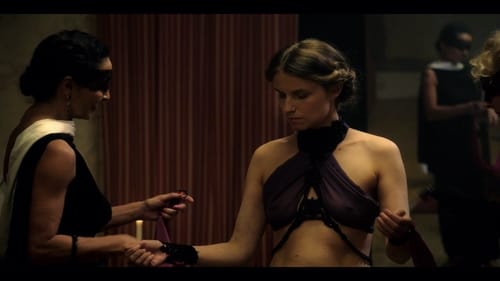
In an extravagant house in Paris, people gather for sexual ceremonies in luxurious environments. The 83-year-old author, Catherine Robbe-Grillet is the brains and heart behind the erotic role playing. She is the dominatrix who controls what goes on and her partner, who is 31 years her junior, has promised to submit to her smallest command. Lina Mannheimer portrays a puzzling, intellectual and deeply fascinating woman who, accompanied by her husband Alain Robbe-Grillet, has dedicated herself to investigating sex both in life and in literature. The sadomasochistic ceremonies are presented with an intense presence and cinematic focus in this beautiful and thought-provoking debut film about desire, power and silk scarves.

Writer
An English historian travels to Morocco to work on a study of the painter Delacroix. He hears of a rare series of engravings and embarks on a search for them that takes him through the mysterious streets of the ancient medina. He becomes obsessed with the figure of a beautiful blond woman dressed in white that he sees there. but it appears that she may have died years before.

Director
An English historian travels to Morocco to work on a study of the painter Delacroix. He hears of a rare series of engravings and embarks on a search for them that takes him through the mysterious streets of the ancient medina. He becomes obsessed with the figure of a beautiful blond woman dressed in white that he sees there. but it appears that she may have died years before.

Self (archive footage)
A documentary about the film, I am Curious-Yellow (1967), and how it made it into the USA and changed film in USA forever by breaking the USA Obscenity Codes.

Marcel Proust (1871-1922) is on his deathbed. Looking at photographs brings memories of his childhood, his youth, his lovers, and the way the Great War put an end to a stratum of society. His memories are in no particular order, they move back and forth in time. Marcel at various ages interacts with Odette, with the beautiful Gilberte and her doomed husband, with the pleasure-seeking Baron de Charlus, with Marcel's lover Albertine, and with others; present also in memory are Marcel's beloved mother and grandmother. It seems as if to live is to remember and to capture memories is to create a work of great art. The memories parallel the final volume of Proust's novel.

Goncourt
Marcel Proust (1871-1922) is on his deathbed. Looking at photographs brings memories of his childhood, his youth, his lovers, and the way the Great War put an end to a stratum of society. His memories are in no particular order, they move back and forth in time. Marcel at various ages interacts with Odette, with the beautiful Gilberte and her doomed husband, with the pleasure-seeking Baron de Charlus, with Marcel's lover Albertine, and with others; present also in memory are Marcel's beloved mother and grandmother. It seems as if to live is to remember and to capture memories is to create a work of great art. The memories parallel the final volume of Proust's novel.

Writer
A lighthouse guardian leads a young prince towards an imaginary world, Taxandria, where the boy learns about the power of love and the value of liberty. A totalitarian regime has forbidden time: time watches have been confiscated, photo cameras are illegal as they freeze a point in time. A typical Servais theme: a power is oppressed by a constraint that denies what is best in the individual, and therefore has to be twisted in various ways, to establish an entirely artificial world, that has rules that may question some of the rules of our world at this side of the mirror.

Writer
The Blue Villa is a seedy bordello on a Mediterranean island where the villages are frightened by the ghost-like return of a young man, who mysteriously disappeared after the killing of a young Eurasian woman.

Director
The Blue Villa is a seedy bordello on a Mediterranean island where the villages are frightened by the ghost-like return of a young man, who mysteriously disappeared after the killing of a young Eurasian woman.

Self
A documentary portrait of Michangelo Antonioni based on Roland Barthes' essay.

The shooting diary of a film shot in France and in the United States. Using photos of Paris and of New York City, excerpts of his former films, statements by friends of his and shooting sequences of the film itself, tormented filmmaker Marcel Hanoun has made a heterogeneous and unclassifiable film about the difficulty of filming.
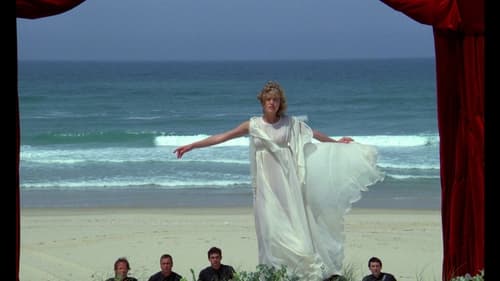
Writer
Walter is told by his boss, Sara, to deliver an urgent letter to Henri de Corinthe. On the way he finds a beautiful woman he had been eying in a nightclub, lying in the road, bound up. He takes her to a villa to get a doctor, and ends up being locked in a bedroom with her. While she is making love to him, he has visions of surrealistic images from René Magritte's paintings. In the morning, the girl, Marie-Ange, has vanished, the villa looks derelict, and his neck is bleeding. Was it all just a nightmare?

Director
Walter is told by his boss, Sara, to deliver an urgent letter to Henri de Corinthe. On the way he finds a beautiful woman he had been eying in a nightclub, lying in the road, bound up. He takes her to a villa to get a doctor, and ends up being locked in a bedroom with her. While she is making love to him, he has visions of surrealistic images from René Magritte's paintings. In the morning, the girl, Marie-Ange, has vanished, the villa looks derelict, and his neck is bleeding. Was it all just a nightmare?

Technical Advisor
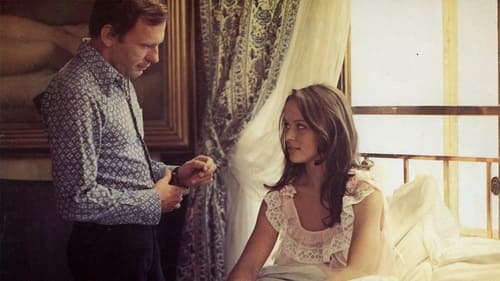
Writer
Philippe Noiret plays a rich, Parisian banker whose daughter, Carolina, is kidnapped by a ruthless organization. They threaten to have her abused by the sadistic clients of a brothel they run if Father doesn’t pay the ransom on time.

Director
Philippe Noiret plays a rich, Parisian banker whose daughter, Carolina, is kidnapped by a ruthless organization. They threaten to have her abused by the sadistic clients of a brothel they run if Father doesn’t pay the ransom on time.
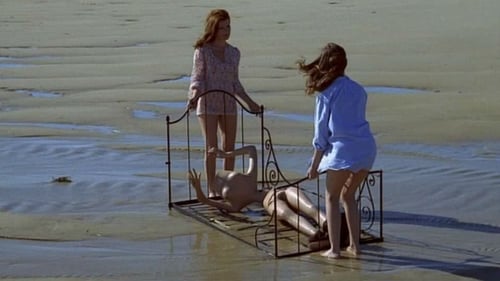
Un Passant dans la Rue (uncredited)
A young woman is questioned by the police and the judges, suspected of being a modern witch. The girl who shared her apartment has been found dead, and a pair of scissors impaled through her heart, as she lay attached to the bedposts. Apparently, the girl does have powers, to make all people around her fall prey to her spell, glissing progressively into desire, lust, and the unknown.

Writer
A young woman is questioned by the police and the judges, suspected of being a modern witch. The girl who shared her apartment has been found dead, and a pair of scissors impaled through her heart, as she lay attached to the bedposts. Apparently, the girl does have powers, to make all people around her fall prey to her spell, glissing progressively into desire, lust, and the unknown.

Director
A young woman is questioned by the police and the judges, suspected of being a modern witch. The girl who shared her apartment has been found dead, and a pair of scissors impaled through her heart, as she lay attached to the bedposts. Apparently, the girl does have powers, to make all people around her fall prey to her spell, glissing progressively into desire, lust, and the unknown.

Writer
N Took the Dice is essentially a reworking of Eden and After made possible by the roll of a dice (scenes from the 1970 film were combined with outtakes and additional footage in an aleatory way). Robbe-Grillet was always interested in music and since he perceived Eden and After to be serial in nature, it only made sense that its sister film would stand in opposition to that.

Director
N Took the Dice is essentially a reworking of Eden and After made possible by the roll of a dice (scenes from the 1970 film were combined with outtakes and additional footage in an aleatory way). Robbe-Grillet was always interested in music and since he perceived Eden and After to be serial in nature, it only made sense that its sister film would stand in opposition to that.
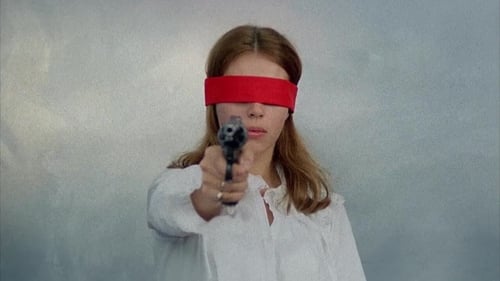
Writer
A group of French students are drawn into the psychological and sexual games of a mysterious Dutchman. Once they sample his "fear powder" the students experience a series of hallucinations.

Director
A group of French students are drawn into the psychological and sexual games of a mysterious Dutchman. Once they sample his "fear powder" the students experience a series of hallucinations.

Novel
A detective is seeking an assassin in a murder that has not yet occurred, only to discover that it is his destiny to become that assassin.

Writer
A man may or may not have betrayed a resistance fighter during World War II. He has supposedly been shot down by the Nazis and wanders into town. Mourning the death of an unseen comrade, he is taken in by the family of the dead rebel. He engages in a superfluous affair and witnesses the lesbian relationship between the man's sister and a female servant. When passions subside, the family has doubts about the reliability of the man's story.

Director
A man may or may not have betrayed a resistance fighter during World War II. He has supposedly been shot down by the Nazis and wanders into town. Mourning the death of an unseen comrade, he is taken in by the family of the dead rebel. He engages in a superfluous affair and witnesses the lesbian relationship between the man's sister and a female servant. When passions subside, the family has doubts about the reliability of the man's story.
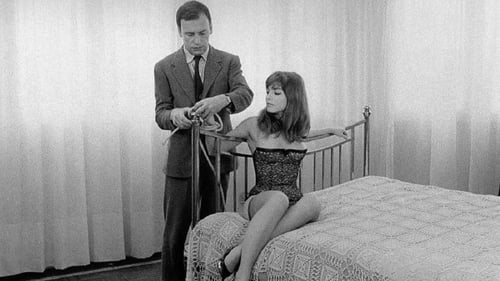
Writer
A film director, Jean, his producer, Marc, and his assistant, Lucette, board the Trans-Europ-Express in Paris bound for Antwerp. Once in their compartment it occurs to them that the drama of life aboard the train presents possibilities for a film, and they begin to write a script about dope smuggling. Subsequently, they see actor Jean-Louis Trintignant walking through the station. As seen through the eyes of Jean, Marc, and Lucette, Trintignant becomes Elias, the chief character in the script. Elias is going to Antwerp to pick up a suitcase of cocaine for delivery to an international organization based in Paris.

Jean
A film director, Jean, his producer, Marc, and his assistant, Lucette, board the Trans-Europ-Express in Paris bound for Antwerp. Once in their compartment it occurs to them that the drama of life aboard the train presents possibilities for a film, and they begin to write a script about dope smuggling. Subsequently, they see actor Jean-Louis Trintignant walking through the station. As seen through the eyes of Jean, Marc, and Lucette, Trintignant becomes Elias, the chief character in the script. Elias is going to Antwerp to pick up a suitcase of cocaine for delivery to an international organization based in Paris.

Director
A film director, Jean, his producer, Marc, and his assistant, Lucette, board the Trans-Europ-Express in Paris bound for Antwerp. Once in their compartment it occurs to them that the drama of life aboard the train presents possibilities for a film, and they begin to write a script about dope smuggling. Subsequently, they see actor Jean-Louis Trintignant walking through the station. As seen through the eyes of Jean, Marc, and Lucette, Trintignant becomes Elias, the chief character in the script. Elias is going to Antwerp to pick up a suitcase of cocaine for delivery to an international organization based in Paris.
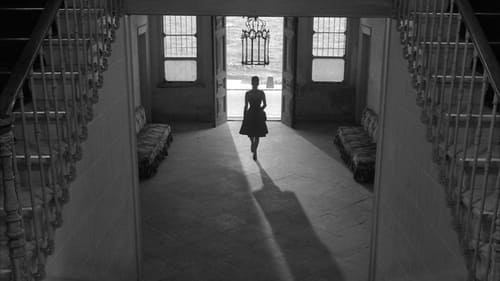
Writer
A melancholy man meets a stunning, mysterious woman while he is traveling, and discovers she may or may not be involved in a prostitution ring. She disappears after their relationship lasts a few days, and though he searches for her, those around him pretend not to know who he is speaking of.

Director
A melancholy man meets a stunning, mysterious woman while he is traveling, and discovers she may or may not be involved in a prostitution ring. She disappears after their relationship lasts a few days, and though he searches for her, those around him pretend not to know who he is speaking of.
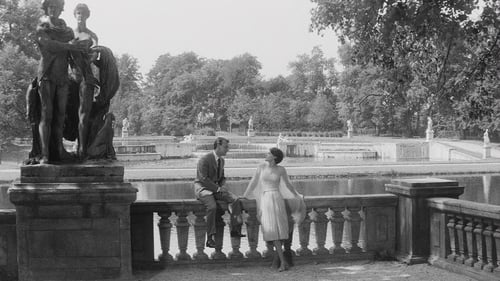
Screenplay
In a strange and isolated chateau, a man becomes acquainted with a woman and insists that they have met before.

